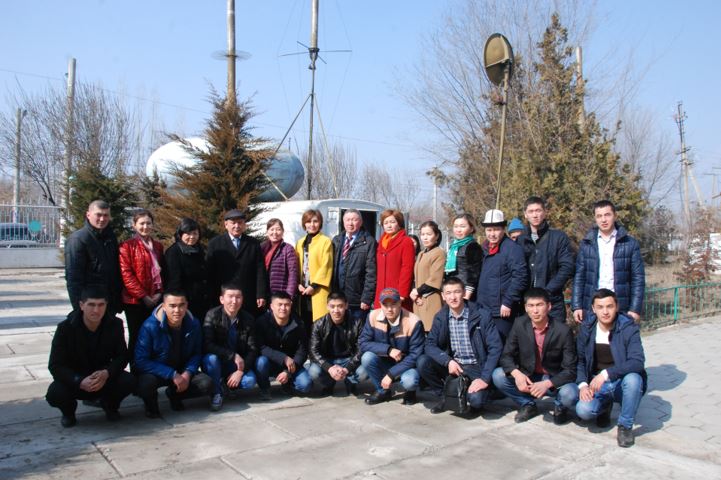 Currently, the Educational Program in Infocommunications and Digital Communications, equipped with all the necessary facilities for training personnel in the field of infocommunications, modern laboratories, and computer classrooms, trains bachelor’s and master’s degree students in the field of 690300-Infocommunications Technologies and Communication Systems.
Currently, the Educational Program in Infocommunications and Digital Communications, equipped with all the necessary facilities for training personnel in the field of infocommunications, modern laboratories, and computer classrooms, trains bachelor’s and master’s degree students in the field of 690300-Infocommunications Technologies and Communication Systems.
Bachelor’s degree programs are offered in the following areas:
Software-protected infocommunications;
Mobile communications and radio access systems;
Digital television and audio broadcasting;
Internet of Things and Telecommunications Systems.
The objectives of the Educational Program “Infocommunications and Digital Communications” are
-to take a leading position in the republic in training personnel in the field of 690300 – Infocommunications Technologies and Communication Systems;
-to train highly qualified scientific and scientific-pedagogical personnel;
-to make a definite contribution to the development of the domestic system of higher and postgraduate education in the field of engineering and technology;
-to actively participate in the implementation of international agreements and memoranda.
The program trains specialists who possess all the necessary competencies to create integrated software protection systems for digital information transmission channels, existing and new generations of wireless communication and data transmission systems (Wi-Fi, LTE, 5G, etc.), network technologies and protocols, and digital methods and devices for transmitting, receiving, and processing information.
During their studies, students will learn to develop components of communication systems for the transmission and processing of information: telephone networks, radio and mobile communications, computer networks, cable television, and other telecommunications systems; build effective models of signals, interference, and communication channels; methods of signal formation and conversion in telecommunications systems; check the performance and effectiveness of the authorization tools, antivirus tools, intrusion detection and prevention systems, authentication systems, cryptographic systems (encryption, digital signatures), identify possible sources and technical channels of confidential information leaks, as well as information interception devices.
The curriculum is designed so that students learn new technologies and programming languages each semester. Students will be able to acquire basic skills in object-oriented programming (C++, Python, Java, etc.), in developing applications for mobile phones, and in programming embedded systems (Arduino, STM32, Altera, etc.). During their studies, students acquire not abstract programming skills, but applied knowledge that can be used in various industries for wireless communication systems, IoT systems, and other information and communication fields.
For more than 20 years, the program has been training specialists for all telecommunications companies in the Kyrgyz Republic, such as Kyrgyz Telecom, Beeline, Megacom, and many others.
Graduates who choose a career in this field can work as:
developers of applied software for information and communication tools and systems, as well as mobile services;
specialists and managers in the operation and maintenance of digital switching systems, subscriber access systems and devices in mobile communication networks;
as a specialist in the organization of business processes in the field of ICT;
as an engineer in the field of communication systems;
as a specialist in information security;
as a system and network administrator;
as a programmer engineer for technical information protection;
as a programmer engineer in any field of activity;
communications systems engineer;
specialist in the development and operation of software and hardware complexes for advanced mobile communication systems and networks;
specialist in the operation of radio engineering equipment and systems;
specialist in business process organization in the field of radio engineering;
developer of radio engineering equipment for mobile communications;
a programmer of control and configuration systems for controllers;
a specialist in the design and administration of computer networks and public access networks;
a designer of radio communication and data transmission networks;
a system and network administrator; and many others.






